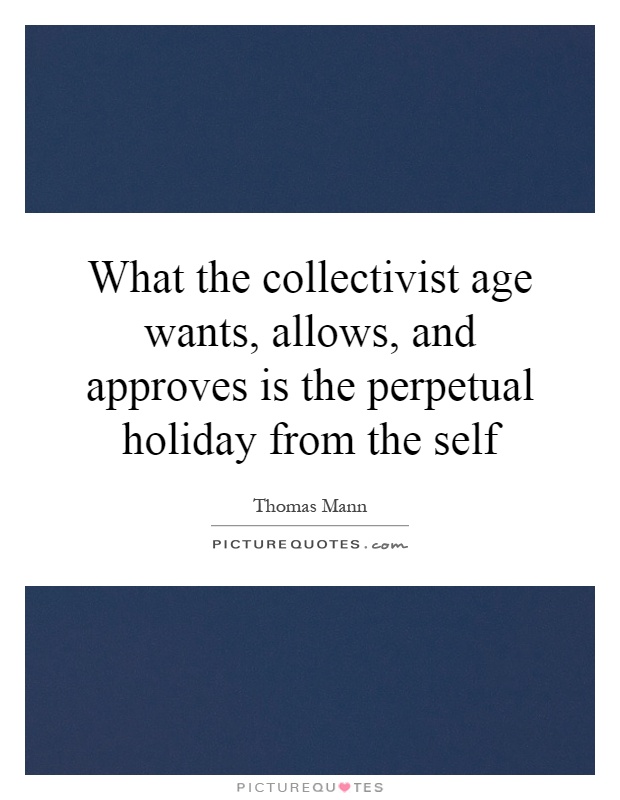What the collectivist age wants, allows, and approves is the perpetual holiday from the self

What the collectivist age wants, allows, and approves is the perpetual holiday from the self
Thomas Mann, a renowned German novelist and essayist, was a keen observer of society and human nature. In his works, Mann often explored the themes of individualism versus collectivism, the struggle between the self and the collective. One of his most famous quotes, "What the collectivist age wants, allows, and approves is the perpetual holiday from the self," encapsulates his views on the dangers of sacrificing individuality for the sake of conformity.Mann believed that in a collectivist society, the emphasis is on the group rather than the individual. People are encouraged to conform to societal norms and expectations, to suppress their own desires and ambitions in favor of the greater good. This constant pressure to fit in and adhere to the collective mindset can lead to a loss of self-identity and autonomy. The individual becomes a mere cog in the machine, a faceless member of the herd, devoid of personal agency and freedom.
In such a society, the idea of taking a "perpetual holiday from the self" becomes appealing. People seek refuge from the pressures of individuality, from the burden of making their own choices and forging their own path. They long for the comfort and security of belonging to a group, of being part of something larger than themselves. The collective provides a sense of identity and purpose, a ready-made identity that requires no effort or introspection.
However, Mann warns against the dangers of this collective mindset. He believed that true fulfillment and happiness can only be found through self-discovery and self-expression. By surrendering to the collective, by relinquishing their individuality, people risk losing touch with their true selves. They become mere followers, followers of the crowd, followers of the prevailing ideology, followers of the status quo.












 Friendship Quotes
Friendship Quotes Love Quotes
Love Quotes Life Quotes
Life Quotes Funny Quotes
Funny Quotes Motivational Quotes
Motivational Quotes Inspirational Quotes
Inspirational Quotes